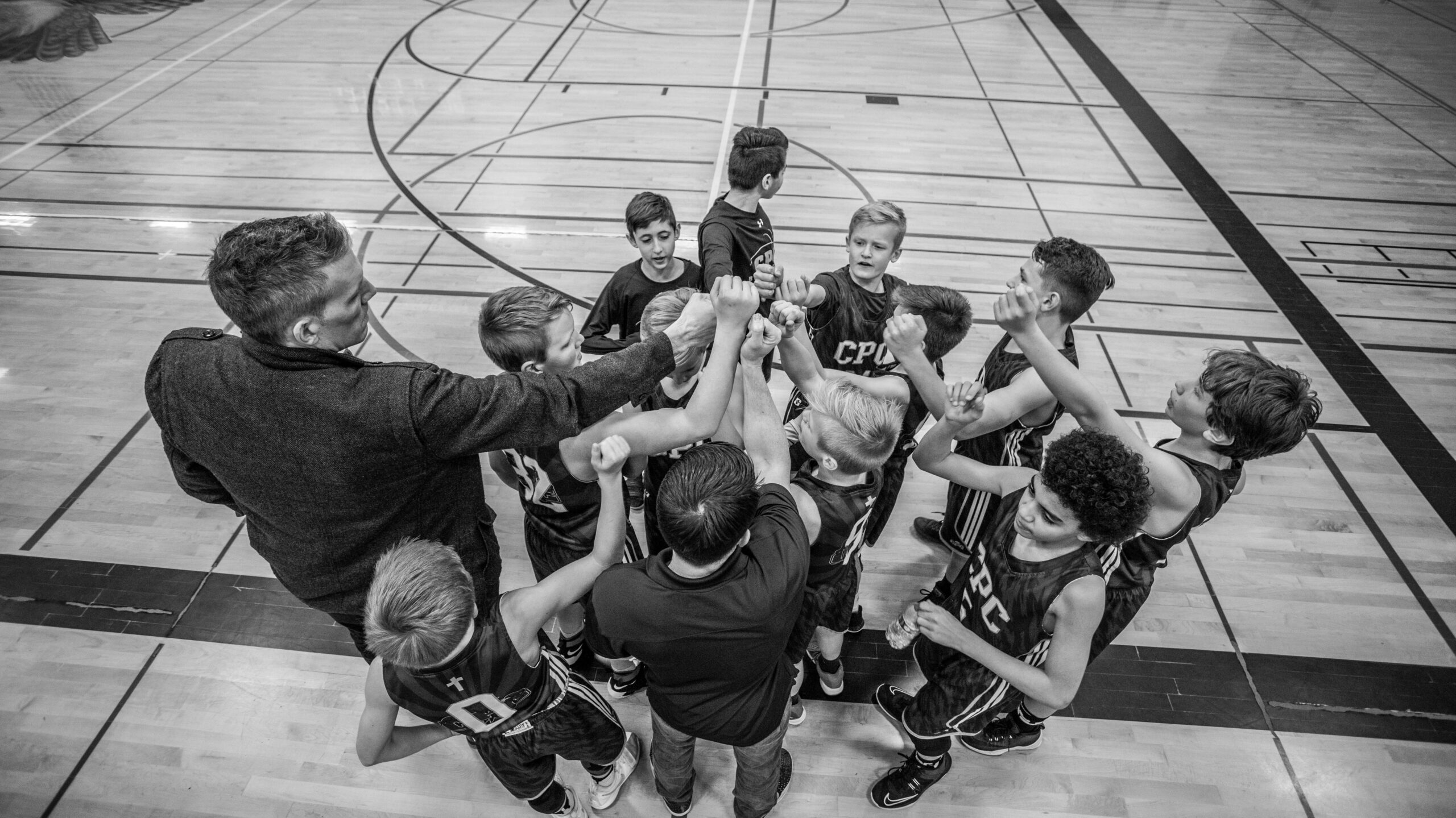Youth sports programs offer numerous benefits that go beyond just physical fitness. From boosting mental health to fostering social connections, sports provide an environment where children can grow and develop important life skills. As youth sports parents, it crucial for us to help choose the right sport(s) for our kids and when we understand the benefits that youth sports have to offer it helps make that selection process easier. Let’s explore the 21 top benefits of youth sports and why these programs are so valuable for kids.

1. Improved Physical Health

Regular participation in youth sports is a proven way to improve physical health. Active kids tend to have stronger muscles, better cardiovascular health, and improved flexibility. Regular physical activity helps prevent obesity, promotes bone strength, and boosts overall fitness. Research shows that children who engage in sports have a reduced risk of chronic health issues like heart disease and diabetes. As a bonus, the habits they develop through sports can lead to healthier lifestyles in adulthood.
2. Reduced Risk of Chronic Diseases

Sports help children develop habits that promote lifelong health. By staying active, kids reduce their risk of obesity, type 2 diabetes, and heart disease. Regular participation in physical activity can help lower the risk of developing these conditions in adulthood, ultimately leading to better long-term health outcomes. Studies indicate that active children are more likely to stay active as adults, helping them maintain healthy habits throughout their lives.
3. Better Mental Health

Youth sports play a significant role in promoting mental well-being. Physical activity triggers the release of endorphins and serotonin, which help reduce stress and anxiety. Being part of a team also provides a sense of belonging, which can improve self-esteem. A study published in the American Journal of Preventive Medicine found that increasing youth sports participation to meet the Healthy People 2030 goal could save the United States $80 billion in direct medical costs and productivity losses, while also delivering over 1.8 million more quality years of life.
4. Improved Social Skills

Youth sports provide an excellent opportunity for children to develop social skills. By working with teammates, kids learn how to communicate, collaborate, and resolve conflicts. Sports also foster empathy and respect, especially in diverse environments where children from various backgrounds come together. These experiences help kids build strong social networks and make lasting friendships.
According to the University of Minnesota, over 60 million children in the United States are involved in youth sports, which can provide children with confidence, skill development, and friendships.
Additionally, research by Professor Maureen Weiss highlights that social benefits of youth sports include developing friendships, supportive relationships with coaches and parents, and attributes like respect and responsibility.
5. Increased Confidence and Self-Esteem

Participating in youth sports offers children opportunities to achieve success, which can enhance their self-esteem and self-confidence. Accomplishments such as scoring a goal, making a great play, or improving a skill contribute to a child’s sense of self-worth. Additionally, sports provide avenues for overcoming challenges and setbacks, further strengthening self-esteem.
A study published in The Sport Journal found that a lifetime of sport participation beginning in youth and adolescence improved physical and psychological well-being, including self-esteem, as individuals entered young adulthood.
Furthermore, research indicates that youth athletes often report higher self-esteem, especially when they are given the chance to succeed at their own pace. These findings underscore the positive impact of youth sports on children’s self-esteem and overall mental well-being.
6. Fosters Teamwork and Cooperation

Youth sports teach the value of teamwork and cooperation. By working together to achieve a common goal, children learn how to collaborate, share ideas, and support each other. These skills are essential both on and off the field. Whether playing soccer, basketball, or another team sport, kids develop an appreciation for working together toward a shared objective, which benefits them in their academic and personal lives.
7. Better Academic Performance

Participating in sports can positively influence academic performance. Student-athletes often benefit from the discipline and focus developed through sports, and the time management skills learned from balancing schoolwork and sports practices can help them stay organized and focused on their studies.
Research supports this connection. A study published in The Journal of School Health found that school sports participation was significantly associated with academic achievement, positive body-image perceptions, and self-esteem.
Additionally, a review in the International Journal of Behavioral Nutrition and Physical Activity examined relationships between school-based physical activities, including sports, and academic performance. The review suggests that participation in school-based physical activities, such as sports, may have a positive impact on academic performance. These findings highlight the potential benefits of sports participation on academic outcomes, emphasizing the importance of extracurricular activities in supporting students’ educational experiences.
8. Learning Discipline and Responsibility

Sports instill discipline and responsibility in kids. They learn how to manage their time, follow rules, and be accountable to themselves and their teammates. The responsibility of showing up for practice and working hard to improve fosters a sense of accountability that carries over into other areas of life. Youth athletes develop a strong work ethic, which helps them stay focused on their goals and commitments.
9. Development of Leadership Skills

Youth sports help kids develop leadership skills, whether as team captains or supportive teammates. These qualities extend beyond sports, benefiting academic and career success. A study by the Women’s Sports Foundation found that athletes, especially those with long-term participation, are more likely to assume leadership roles due to the confidence and skills developed in sports. Research also shows that youth athletes often report higher self-esteem, further encouraging leadership in various areas of life.
10. Teaches Goal Setting

Sports teach children how to set and achieve goals. From mastering a skill to winning a game, sports provide numerous opportunities to set both short- and long-term goals. The process of working toward these goals teaches kids perseverance, determination, and how to break larger tasks into smaller, manageable steps. This skill is valuable in academics and future career pursuits.
11. Improved Concentration and Focus

Engaging in physical activity enhances cognitive functions such as concentration and focus in children. Exercise increases blood flow to the brain, improving memory retention and attentiveness in the classroom. Youth athletes often exhibit heightened attention and task concentration due to the brain-boosting effects of regular physical activity.
Research from the University of Illinois supports this connection. A study found that toddlers who engaged in daily physical activity performed significantly better on working memory tests compared to those who did not. Additionally, research indicates that chronic physical activity participation is associated with improved cognitive performance on intenionally demanding tasks in preadolescent children. These findings underscore the positive impact of physical activity on children’s cognitive development and academic performance.
12. Increased Resilience

Participating in sports helps children develop resilience by teaching them to cope with setbacks and failure. Experiences such as losing games or making mistakes are integral to sports, offering valuable lessons in perseverance. A study published in the International Journal of Environmental Research and Public Health identified sports participation as a key resilience factor for young people facing adverse childhood experiences, highlighting its role in fostering coping mechanisms and well-being.
Additionally, research indicates that sports provide opportunities to overcome obstacles and endure failures, inherently building resilience. By navigating challenges in sports, children develop emotional resilience that benefits them throughout their lives.
13. Sense of Community and Belonging

Participating in team sports provides children with a strong sense of community and belonging, which are essential for emotional development. These shared experiences foster friendships and camaraderie, contributing to children’s overall well-being. Research supports these benefits. A study published in the International Journal of Behavioral Nutrition and Physical Activity found that team sports participation is associated with improved social health outcomes, including enhanced self-esteem and social interaction.
Additionally, an article from OSF HealthCare highlights that team sports offer camaraderie, a sense of belonging, and pride, all of which are beneficial to a child’s mental health.These findings underscore the positive impact of team sports on children’s social connections and emotional development.
14. Increased Family Bonding

Youth sports provide opportunities for families to spend time together. Whether attending games, practices, or simply cheering on their child, sports create shared experiences that can strengthen family bonds. Research shows that families who engage in sports activities together tend to have better communication and stronger relationships.
15. Improved Time Management Skills

Participating in sports helps children develop better time management skills. Balancing school, sports, and other responsibilities teaches kids how to prioritize tasks and stay organized. These skills are essential for success in both academics and later in life. Studies show that children involved in sports tend to be better at managing their time and handling multiple responsibilities.
16. Increased Self-Discipline

Youth sports teach kids how to stay disciplined and focused on their goals. Regular practice, adherence to rules, and dedication to improvement all contribute to building self-discipline. Children who learn self-discipline in sports are more likely to carry these habits into other areas of their lives, helping them succeed in school and beyond.
17. Long-Term Benefits for Future Success

Participating in youth sports fosters leadership, teamwork, and time management skills, contributing to long-term success. Adults who played sports as children are more likely to hold leadership positions and experience greater job satisfaction. Research indicates that former student-athletes are perceived to possess superior leadership abilities, self-confidence, and self-respect.
Additionally, a study by Cornell University found that participation in competitive sports during youth predicts higher managerial responsibilities and autonomy in adulthood. These findings underscore the lasting impact of youth sports on career success.
18. Learning to Lose

Participating in sports teaches children how to handle disappointment and view failure as opportunities for growth, fostering emotional maturity. Learning to lose gracefully involves recognizing mistakes, improving upon them, and celebrating others’ successes. Studies have shown that sports participation is positively associated with resilience in children and adolescents, highlighting its role in promoting mental health.
Additionally, engaging in physical activities releases neurotransmitters and endorphins, enhancing mood and fostering psychological resilience. These findings underscore the role of sports in developing emotional regulation and resilience, equipping children to navigate challenges across various aspects of life.
19. Improved Body Image and Self-Confidence

Engaging in sports can enhance a child’s body image by fostering a sense of strength and capability. As children develop their physical abilities through sports, they often gain confidence in their bodies, leading to a positive self-image essential for emotional well-being. Research supports this connection. A study published in the Journal of Adolescent Health found that sports participation from childhood to adolescence was associated with a 42% lower chance of body dissatisfaction among boys. However, no significant association was observed among girls.
Additionally, a longitudinal study in Australia examined the association between sports participation and psychosocial well-being, including body image. The study observed that higher participation in sports was linked to small gains in perceptions of social competence during late childhood to early adolescence, suggesting that sports may contribute to young adolescents’ perceptions of their social capabilities. These findings highlight the potential of sports to positively influence children’s body image and self-perception, contributing to their overall emotional well-being.
20. Reduced Likelihood of Risky Behaviors

Children who participate in sports are less likely to engage in risky behaviors like smoking, drinking, or using drugs. The structure and discipline of sports keep kids engaged in healthy activities, reducing negative behaviors. A National Institute on Drug Abuse study found that teens involved in sports are less likely to experiment with substances compared to their peers.
A systematic review found that sports participation correlates with reduced illicit drug use, with 80% of studies showing positive results. However, the relationship with alcohol is more mixed. Overall, sports promote healthier behavior by providing structure and engagement, supporting youth in avoiding risky behaviors.
21. Enhanced Creativity and Problem-Solving Skills
Benefits of Youth Sports – Creative Play

Youth sports encourage children to think creatively and solve problems. The dynamic and unpredictable nature of sports often requires kids to come up with quick solutions and adapt to changing circumstances. These experiences foster critical thinking and enhance their ability to handle challenges in other areas of life. Research indicates that sports can stimulate creative thinking by encouraging kids to approach situations from different angles and develop strategies on the fly.
Conclusion:
Youth sports programs offer invaluable benefits that go beyond just staying active. From improving physical health to fostering social connections and mental resilience, sports play a crucial role in shaping children into confident, disciplined, and successful individuals. As parents, educators, and communities, it’s essential to continue supporting youth sports programs and provide children with the opportunity to participate. The lessons learned through sports will serve them well throughout their lives.


Excellent article! The way you explained the distinction between immediate benefits and long-term growth was really insightful. I hadn’t thought about them as separate concepts before, but now I can see how these two types of lessons play distinct yet complementary roles in shaping someone’s journey. Immediate benefits might offer short-term rewards, but it’s the long-term lessons that truly impact how someone navigates challenges and ultimately reaches their goals. These insights made me realize that both aspects are equally important—each contributing to a person’s overall development and the way they approach their future. It’s fascinating how these lessons influence not just where someone ends up, but also the kind of person they become along the way.
Thank you so much for your kind words and thoughtful response! I’m really glad the article resonated with you. It’s amazing how often we overlook the balance between immediate benefits and long-term growth, and I’m happy the distinction helped shed light on how they complement each other. You’re absolutely right—each aspect plays a crucial role in shaping not just the destination, but the journey itself. I appreciate your reflections and love how you’ve captured the essence of the article so well!
Absolutely fundamental for proper growth and development. Well written and informative, and also great advice for anyone concerned about the failing health of our young people in America. Your article brings out some often-overlooked truths about physical activity and mental awareness. Wii, Gameboy, and electronic games just don’t cut it. Thank you for a great post.
Thank you for your thoughtful comment! I couldn’t agree more—regular physical activity is crucial for the healthy growth and development of young people. In a world where screens are everywhere, it’s more important than ever to encourage kids to get outside, play sports, and stay active. Not only does it benefit their physical health, but it also sharpens their minds and builds important life skills. I appreciate your kind words and your passion for this topic. Let’s keep advocating for healthier habits for the next generation!
Frankly speaking, this article really resonated with me—it reminds us that youth sports offer much more than physical activity. They help build self-confidence, teamwork, and social skills, which can benefit children throughout their lives. I appreciate how it highlights that sports teach discipline, resilience, and even creative problem-solving, all while promoting healthy habits. I will say,it’s a powerful reminder of why investing in youth sports can truly shape a child’s future.
Thank you for your thoughtful response! I love that this article resonated with you. Youth sports truly go beyond just physical activity—they shape character, build confidence, and teach invaluable life skills that kids carry into adulthood. The discipline, teamwork, and resilience they develop can impact their future in profound ways. It’s encouraging to hear others recognize the lasting benefits of investing in youth sports. I appreciate your insight and support—let’s keep championing these opportunities for the next generation!
Youth sports play such a crucial role in the development of kids, and this article does a great job of outlining the numerous benefits they provide. From physical health improvements to valuable life skills like teamwork, discipline, and perseverance, sports offer children so much more than just exercise. It’s fascinating to see how these activities contribute to their emotional and social growth as well.
Youth sports have had a tremendously positive impact on children I know, including my own family members. Not only have they helped build confidence and foster friendships, but they’ve also encouraged healthy habits that stick with them into adulthood. Watching kids develop resilience and learn how to handle both victory and defeat is always inspiring.
It’s interesting how participation in sports can enhance cognitive skills and even improve school performance. How would you recommend encouraging children who may not naturally be drawn to sports to still engage in some form of physical activity?
Thank you for your insightful comment! It’s amazing to hear how youth sports have positively impacted your family members. The lessons kids learn—confidence, teamwork, resilience—truly extend far beyond the field.
For children who may not naturally be drawn to sports, I’d recommend focusing on fun rather than competition. Activities like swimming, martial arts, dance, or even outdoor adventures can keep them engaged. Letting them explore different activities until they find one they enjoy can make all the difference. Encouragement, not pressure, is key to fostering a lifelong love for movement! ⚽????♂️????
Hi Zachary,
I’ve read through your article “Benefits of Youth Sports” on littleleaguerspot(.)com, and I must say, it’s an incredibly well-researched and informative piece. Your writing effectively highlights the numerous advantages that youth sports offer, extending far beyond just physical fitness.
One aspect that particularly stood out to me was how you emphasized the role of sports in promoting mental health and emotional well-being. Your inclusion of research findings, such as the study from the American Journal of Preventive Medicine, adds credibility to your points and underscores the significant impact sports can have on reducing stress, anxiety, and healthcare costs.
Your article also does an excellent job of exploring the social benefits of youth sports. The way you discuss how sports foster empathy, respect, and strong social networks is both insightful and relatable for parents. The statistics you provide, such as the University of Minnesota’s findings on the millions of children involved in youth sports, further reinforce the widespread impact of these programs.
Another strength of your article is how you delve into the academic and career benefits of sports participation. The connections you draw between sports and improved focus, time management, and leadership skills are well-supported by the research you cite. This information is valuable for parents who may be considering enrolling their children in sports programs.
Overall, your article is a comprehensive and engaging resource for anyone interested in understanding the far-reaching benefits of youth sports. Your writing style is clear, informative, and persuasive, making a strong case for the importance of these programs in child development. The 21 benefits you outline, along with the supporting research and statistics, create a compelling argument for the value of youth sports.
Thank you for sharing this insightful and well-written article. It’s a valuable contribution to the conversation around youth development and the role of sports in shaping healthy, confident, and successful individuals. Keep up the great work!
All the Best,
Eric
Hi Eric,
Thank you so much for your thoughtful feedback! I’m really glad the article resonated with you, especially the points on mental health, social benefits, and the connection between sports and academic/career skills. It’s great to know the research and stats helped highlight just how impactful youth sports can be.
Your comments mean a lot, and I appreciate you taking the time to share your thoughts. I’m excited to keep creating content that can help parents navigate the world of youth sports!
Thanks again,
Zac
Hello Zachary,
My name is Mark. I was able to follow your line of thinking in the article pretty well. I see me in this article in my childhood playing baseball and basketball. I agree with many of the points due to how I was shaped by my sports participation. The one thing that bothers me today is, it seems, kids don’t participate like I did. Kids today like to sit at home playing video games. Kids just don’t go outside much anymore, which has led to higher instances of obesity and type two diabetes going into early adulthood.
With that said, I have three questions for you:
1. In what ways does playing sports contribute to a child’s self-esteem and confidence?
2. How does sports participation help children develop emotional resilience?
3. What life skills do kids gain from participating in youth sports?
Thanks,
Mark
Hey Mark,
Thanks for taking the time to read and share your thoughts! I can definitely relate to what you’re saying—I grew up playing baseball and basketball too, and those experiences shaped me in so many ways. It’s true that things have changed, and with more kids spending time indoors on screens, we’re seeing real impacts on physical health. That’s one of the big reasons I’m so passionate about encouraging youth sports today.
Great questions! Here are my thoughts:
1️⃣ Self-Esteem & Confidence – Playing sports helps kids build confidence in a few key ways. First, as they develop skills and improve over time, they gain a sense of accomplishment. Second, being part of a team provides encouragement and a sense of belonging. And third, facing challenges—like learning a new skill, bouncing back from mistakes, or competing in a game—teaches kids to believe in themselves.
2️⃣ Emotional Resilience – Sports naturally teach kids how to handle wins and losses, which is huge for emotional development. They learn how to manage frustration, overcome setbacks, and keep pushing forward even when things don’t go their way. These lessons translate directly into real life, helping kids deal with school pressures, friendships, and future challenges with a stronger mindset.
3️⃣ Life Skills from Youth Sports – Beyond just teamwork and discipline, kids gain leadership skills, time management, communication, and the ability to work toward long-term goals. They also learn accountability—showing up for practice, giving their best effort, and being responsible to their team. These are skills that will serve them well in adulthood, no matter what they choose to pursue.
Appreciate the great conversation, Mark! Have you seen any of these benefits play out in your own sports experiences?
– Zac
Hi Zachary,
You do a fantastic job of highlighting the many benefits of youth sports, making it clear just how impactful sports can be for children. Beyond just staying active, youth sports shape kids into confident, resilient, and socially connected individuals. I really appreciate how you break down these benefits so well, covering everything from mental health improvements to leadership skills and academic success.
One point that really stood out to me was your emphasis on discipline, teamwork, and goal-setting—skills that last a lifetime. Your use of research-backed insights makes the case even stronger, especially in showing how sports contribute to better body image, self-esteem, and a lower likelihood of risky behaviors.
For parents wondering whether to enroll their children in sports, you make a compelling case—youth sports provide benefits far beyond the game itself. I love how you emphasize that sports help build character, confidence, and lifelong healthy habits. Great article!
Hey there!
Wow—thank you so much for your thoughtful and encouraging comment! It really means a lot. I’m passionate about showing how youth sports impact kids beyond just physical activity, so I’m glad that message came through.
I totally agree—discipline, teamwork, and goal-setting are skills that stick with kids long after their playing days are over. And when sports help with things like confidence, self-esteem, and even making positive life choices, it just reinforces how valuable they are.
I appreciate you taking the time to read and share your thoughts! It’s always great to connect with others who see the bigger picture of what youth sports can do for kids. Thanks again!
– Zac
This is a good post, thank you.
I think you have explained a few really important points here about the benefits of sports for kids.
I have to agree that it is more important now than ever to encourage youngsters to get involved in sports, especially with how much time they spend on laptops and mobile phones these days. It seems very rare now to see kids playing together, it is certainly not the same as when I was growing up. How times change.
I think that getting kids to stay active helps them physically and socially, and that is something that is easily overlooked when they are always glued to their devices.
Thanks, good information here!
Chris
Hey Chris!
I really appreciate your comment—thank you! You bring up such a great point. With so many kids spending a lot of time on screens these days, it feels more important than ever to encourage them to get outside, stay active, and engage in real-world social interactions.
I hear you on how much things have changed. When we were kids, it was so normal to just go outside and play for hours. Now, with technology being such a big part of everyday life, it takes more intentional effort to make sure kids stay active. But like you said, the physical and social benefits of sports are huge, and definitely something we don’t want to overlook.
Glad you found the post helpful—thanks again for sharing your thoughts!
– Zac
This blog does a fantastic job of highlighting the diverse benefits of youth sports, from physical health to life skills like teamwork and resilience. I love how it combines research-backed insights with practical reasoning, making a strong case for encouraging kids to participate. As a parent (or someone passionate about youth development), it makes me wonder how can schools and communities make sports more accessible for kids who might not have the resources or opportunities to join?
Hey there!
Thank you so much for your thoughtful comment! I’m really glad you found the post both insightful and practical. Youth sports have such a profound impact on kids, but you bring up an important point—accessibility is key. Not every child has the same opportunities, and that’s something schools and communities can work to improve.
A few ways to make youth sports more accessible could be:
1️⃣ Affordable or Free Community Programs – Local organizations, schools, and even businesses can step up to offer low-cost leagues, scholarships, or free clinics.
2️⃣ Equipment Sharing & Donations – Many kids miss out simply because of the cost of gear. Programs that allow for donated or borrowed equipment can make a huge difference.
3️⃣ Partnerships with Schools & Local Businesses – Schools partnering with businesses or nonprofits for sponsorships can help cover costs and create more opportunities for kids to play.
4️⃣ Flexible & Inclusive Options – Some kids may not be ready for the structure of traditional leagues. Offering more casual, inclusive programs (like schoolyard games, intramural sports, or multi-sport exposure) can help.
I’d love to hear your thoughts—have you seen any great initiatives that help make sports more accessible in your community?
– Zac
This article truly highlights why youth sports are so valuable! I’ve seen firsthand how sports can shape kids into confident, resilient individuals. My little one isn’t quite at the sports stage yet, but I’m already looking forward to introducing him to a fun, active lifestyle. Beyond the physical benefits, I love how sports teach teamwork, discipline, and leadership—skills that will serve them well in life. It’s also amazing to see how being part of a team builds friendships and a sense of belonging. Thanks for sharing this insightful post—definitely a great reminder of why youth sports matter!
Hey there!
Thank you so much for your kind words! It’s awesome that you’re already thinking ahead about introducing your little one to a fun, active lifestyle. When the time comes, I’m sure they’ll have a blast—and you’ll get to see firsthand how sports shape kids beyond just the physical benefits.
I totally agree—teamwork, discipline, leadership, and that sense of belonging are some of the most valuable life skills sports can instill. It’s amazing how those early experiences on the field or court can have such a lasting impact.
Appreciate you taking the time to read and share your thoughts! Wishing you and your little one lots of fun and adventure when the sports journey begins. ⚾????⚽
– Zac
I thoroughly enjoyed your article on the 21 benefits of youth sports for kids, Zachary! As a psychologist and wellness specialist, I wholeheartedly agree that sports significantly enhance children’s physical health, mental well-being, and social skills. Your comprehensive breakdown of these benefits provides valuable insights for parents and educators. Seeing such a well-rounded perspective on how sports can positively shape a child’s development is inspiring. Thank you for shedding light on this important topic!
Hey there!
Thank you so much for your thoughtful comment—I really appreciate it! It means a lot coming from someone with your background in psychology and wellness. The impact of youth sports goes so far beyond the game itself, and it’s great to hear that you see these benefits play out in your field as well.
I’m passionate about helping parents and educators recognize just how much sports can shape a child’s growth—physically, mentally, and socially—so I’m glad this article resonated with you! Thanks again for your kind words and for the work you do in supporting kids’ well-being.
– Zac
Youth Sport has a very important role in any youngster’s life as it does promote social and team skills which is invaluable in later life, not to mention the health benefits offered.
However lately I have noticed that the sports scene is becoming really competitive and sometimes I see children being pushed to the limits by overzealous coaches. I also notice that the injury rate has spiked over the last few years and children are generally burnt out. How do we find a happy balance to prevent this from happening?
Hey there!
You bring up such an important point. While youth sports offer incredible benefits—social skills, teamwork, discipline, and overall health—it’s true that the competitive side has intensified in many places. I’ve seen it too, where kids are sometimes pushed too hard, leading to burnout and even injuries.
Finding a healthy balance is key, and I think it starts with a mindset shift. Here are a few ways we can help keep youth sports positive and sustainable for kids:
1️⃣ Prioritizing Fun & Development – The focus should be on skill-building, teamwork, and enjoyment rather than just winning. When kids have fun, they naturally improve and stay engaged long-term.
2️⃣ Watching for Overuse & Burnout – Specializing too early in one sport can lead to injuries and exhaustion. Encouraging kids to play multiple sports or take breaks can help prevent this.
3️⃣ Educating Coaches & Parents – Coaches and parents play a huge role in setting the tone. A supportive, growth-focused approach goes a long way in making sports a positive experience rather than a pressure-filled one.
4️⃣ Listening to the Kids – If a child is constantly stressed or fatigued, it’s worth reevaluating their schedule and making sure they have time to rest and just be a kid.
It’s all about balance—giving kids the opportunity to grow through sports without pushing them to the point where they lose the love for the game. I’d love to hear your thoughts—have you seen any good examples of programs or coaches that do this well?
– Zac
This is such a fantastic breakdown of the many benefits youth sports offer kids—not just physically, but mentally and socially as well. It’s incredible how participating in sports can teach lifelong skills like teamwork, discipline, and resilience, all while keeping kids active and healthy. I especially appreciate how the article highlights confidence-building and leadership development, which often get overlooked but are so crucial for young athletes.
Speaking from personal experience, I’ve seen firsthand how involvement in sports has positively impacted kids in my community—not only improving their fitness but also helping them form lasting friendships and develop strong work ethics. It’s clear that the lessons learned on the field or court often carry over into school and everyday life.
I’d be curious to hear how others have seen youth sports influence kids beyond just the athletic side—any memorable experiences or takeaways?
Hey there!
Thank you so much for your kind words! I couldn’t agree more—sports do so much more than keep kids active; they shape character, build confidence, and teach invaluable life skills. Leadership and confidence-building are definitely some of the most underrated benefits, but they make such a lasting impact on young athletes.
I love that you’ve seen these benefits play out firsthand in your community! It’s amazing how the lessons learned through sports—like teamwork, perseverance, and discipline—carry over into school, friendships, and even future careers.
As for memorable experiences, I’ve definitely seen kids who started out shy or uncertain completely transform through sports. Whether it’s finally stepping up to lead a team, bouncing back from a tough loss, or learning to encourage teammates, these moments stick with them for life.
I’d love to hear more about what you’ve seen in your community too! What’s been one of the biggest transformations you’ve witnessed through youth sports?
– Zac
What an incredible and comprehensive post! I really appreciate how you highlighted not only the physical benefits of youth sports but also the profound impact on mental health, social development, and even academic success. As a parent, I’ve seen firsthand how sports have helped my child build confidence, learn discipline, and develop friendships that go beyond the field. The point about resilience and learning to lose gracefully really resonated with me—it’s such a valuable life lesson that sports teach in a natural and supportive way. This post is a fantastic reminder of why encouraging kids to get involved in sports is one of the best investments we can make in their future. Thank you for shining a light on all these benefits—it’s both inspiring and informative!
Hey there!
Wow—thank you so much for your thoughtful comment! It means a lot, especially coming from a fellow parent who’s seen these benefits play out in real life. Confidence, discipline, friendships, and resilience are such huge takeaways from youth sports, and I love that your child has experienced them firsthand.
The lesson of learning to lose gracefully really resonates with me too. It’s one of those things that carries over into so many areas of life, and sports provide such a natural, supportive way to develop that kind of resilience.
I appreciate you taking the time to share your perspective—it’s always great to hear from other parents who value the impact of youth sports as much as I do. Thanks again for your kind words!
– Zac
Fantastic article! The benefits of youth sports go far beyond just physical fitness, and you’ve done a great job highlighting how they shape kids into well-rounded individuals. From teamwork and discipline to improved confidence and resilience, sports truly have a lasting impact on a child’s development.
One question—do you have any recommendations for parents who want to encourage their kids to try sports but are struggling with their child’s initial reluctance? Sometimes kids may be hesitant to join, and I’d love to hear your thoughts on how to ease them into it!
Looking forward to your insights!
Phil
Hey Phil!
Thanks so much for your kind words—I really appreciate it! As both a parent of two young kids in sports and someone who grew up playing a ton of youth sports myself, I’ve seen firsthand how much of a positive impact they can have.
Great question! It’s totally normal for kids to be hesitant about trying something new, especially when it comes to sports. Here are a few things that might help ease them into it:
1️⃣ Start with fun, low-pressure exposure – Play a casual game in the backyard, take them to watch a local youth game, or even let them try out sports-related video games. The goal is to make it feel like play rather than a big commitment.
2️⃣ Let them choose – Instead of signing them up for the first sport that comes to mind, give them options and let them pick what interests them most. Sometimes kids are more open to something when they feel like they have a say.
3️⃣ Find a friend – Everything is more fun with a buddy! If they have a friend or sibling interested in the same sport, it can make the experience less intimidating.
4️⃣ Emphasize the social and fun aspects – Talk about how sports aren’t just about competition—they’re also about making friends, having fun, and learning cool new skills.
5️⃣ Try short-term programs or camps – Instead of committing to a full season, look for sports clinics or short programs that let them test the waters without feeling locked in.
6️⃣ Be patient and encouraging – Sometimes, it just takes time. If they try a sport and don’t love it, that’s okay! Encouraging an active lifestyle and a willingness to try new things is what matters most.
I hope that helps! Would love to hear if you’ve tried anything that worked with your own kids too. Thanks again for reading!
– Zac
Youth sports produces so many valuable benefits beyond just physical activity. The way they help kids develop teamwork, discipline, and resilience is incredible.
I’ve seen firsthand how sports can build confidence, especially for kids who might struggle in other areas. It’s amazing how much leadership and social skills grow through competition and collaboration.
In your experience, what’s the biggest long-term benefit kids take away from playing youth sports?
Thank you so much for your thoughtful comment! ???? I completely agree with you—youth sports offer so much more than just physical benefits. In my experience, the biggest long-term benefit kids take away is the ability to handle challenges and setbacks. Learning resilience through sports helps them face difficulties in life with a positive mindset. The confidence they build in overcoming obstacles on the field can translate into other areas, like school or personal growth. What has been your experience with how kids have developed in the long run through sports? ????
-Great list of benefits of youth sports for young kids, $$
-I suppose one question I have is, can you do a more descriptive outline of the ages of kids and the benefits as they get older? That is, can you explain the benefits of sports for all children at different ages?
-Best of luck to you,
ALEJANDRO G.
Hey Alejandro,
Thanks for reading and for your question! ???? You bring up a great point—sports impact kids differently at various stages of development. Here’s a quick breakdown of how the benefits evolve as kids grow:
???? Ages 3-5 (Intro to Movement & Play)
Develops basic motor skills (running, jumping, coordination)
Encourages social interaction and following simple instructions
Builds a foundation for a love of movement through fun, unstructured play
???? Ages 6-9 (Skill Development & Teamwork)
Improves coordination, balance, and fundamental sports skills
Teaches teamwork, sharing, and how to follow structured rules
Builds confidence as they start to see personal progress
????⚕️ Ages 10-12 (Competition & Resilience)
Introduces more strategic thinking and decision-making in sports
Helps kids learn how to handle both success and failure
Encourages leadership and responsibility within a team
???? Ages 13+ (Personal Growth & Long-Term Benefits)
Reinforces discipline, goal-setting, and perseverance
Can provide social belonging and a positive peer group
Helps with stress relief, mental health, and academic focus
Would love to dive deeper into this in a future post! Thanks again for the suggestion, and best of luck to you as well!
Zac
Hi,
Great article! You’ve covered so many important benefits of youth sports, from physical fitness to teamwork and leadership skills. I especially liked the point about resilience—learning to handle wins and losses is such a valuable life lesson.
I’m curious, do you think certain sports are better suited for kids who are shy or struggle with confidence? If so, which ones and why?
– Scott
Hey Scott,
Thanks for the kind words! ???? I’m glad the resilience aspect stood out to you—it’s such a crucial life skill that youth sports naturally help develop.
Great question! For kids who are shy or struggle with confidence, certain sports might be a better fit based on their personality and comfort level. Here are a few that tend to work well:
???? Swimming – An individual sport where kids can progress at their own pace, but still be part of a supportive team.
???? Martial Arts (Karate, Taekwondo, Jiu-Jitsu) – Helps build confidence through discipline, self-improvement, and small, achievable milestones.
???? Tennis – Offers a mix of solo and doubles play, allowing kids to build skills independently while still having social interaction.
???? Track & Field / Cross Country – Focuses on personal achievement and steady improvement rather than high-pressure team dynamics.
⚽ Soccer (or other team sports with structured roles) – If a shy child is open to team sports, positions like goalkeeper or defense allow them to contribute meaningfully without needing to be the center of attention.
The key is finding an environment where they feel safe to grow in confidence while having fun. Have you seen any kids in your life blossom through sports?
Zac
This is such a well-rounded and insightful breakdown of the benefits of youth sports! It’s incredible to see how participation goes beyond just physical fitness and contributes to mental health, academic success, and even long-term career skills. The emphasis on resilience, teamwork, and leadership is especially important—these are life skills that extend far beyond the playing field.
One aspect I’d love to hear more about is how parents can help kids find the right sport for their personality and interests, especially if they’re hesitant or less athletically inclined. Are there strategies for making sports more engaging for kids who might not naturally gravitate toward them?
Thanks for putting together such a valuable resource!
Thank you so much for your thoughtful comment! ???? I love that you recognize how youth sports shape kids in so many ways beyond just physical fitness—it’s amazing how the lessons learned on the field (or court!) can impact their whole lives.
Great question about helping kids find the right sport! Here are a few strategies that can make the process easier and more engaging, especially for kids who might not naturally gravitate toward sports:
???? Try different options – Exposing kids to a variety of activities (team sports, individual sports, or even recreational leagues) can help them find what clicks. Not every kid loves competition, but they might enjoy something like swimming, martial arts, or rock climbing.
???? Follow their interests – If they love strategy, something like baseball or golf might appeal to them. If they’re social, team sports like soccer or basketball could be a great fit.
???? Focus on fun over performance – Keeping the emphasis on enjoyment rather than skill level helps hesitant kids feel more comfortable.
???? Look for positive environments – A great coach and an encouraging team atmosphere can make all the difference in whether a child enjoys the experience.
The key is patience—sometimes it takes a little trial and error to find the right fit! Have you seen any kids in your life discover a love for sports in unexpected ways? ⚽????????
Youth sports pack a serious punch when it comes to shaping kids into well-rounded individuals. Love how this dives into both physical and mental benefits—so much more than just staying active! Curious, though—what’s the best way to help kids stay motivated in sports when they hit a rough patch or lose interest?
Thanks for the great feedback! ???? You’re absolutely right—youth sports go way beyond just keeping kids active; they help shape character, resilience, and confidence too.
When kids hit a rough patch or lose interest, a few things can help keep them motivated:
✅ Keep it fun – Sometimes, kids just need a reminder that sports are meant to be enjoyable. Switching up routines, playing with friends, or even trying a new position can reignite their excitement.
✅ Encourage, don’t pressure – A little support goes a long way. Letting them know it’s okay to have ups and downs can help take the pressure off.
✅ Set small goals – Instead of focusing on big wins, celebrating small improvements (like mastering a new skill) can keep them engaged.
✅ Let them take a break if needed – Sometimes, stepping away for a bit can help them rediscover their love for the game.
Every kid is different, but keeping things positive and low-pressure usually helps! Have you seen this happen with any young athletes in your life? ⚾????⚽